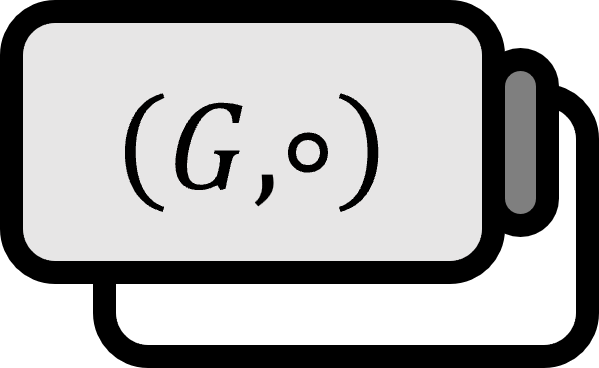Nucleus, Kernel in Abstract Algebra
Definition
The kernel of $G, G'$ with respect to the identity element $e, e'$ and the homomorphism $\phi : G \to G'$ is the preimage $ \phi^{-1} [ \left\{ e' \right\} ]$ of $\left\{ e' \right\}$ and is denoted as $\ker \phi $.
Theorem
- [1]: For $g \in G$, $g ( \ker \phi ) = ( \ker \phi ) g$
- [2]: $\ker \phi \triangleleft G$
- [3]: $\ker \phi = \left\{ e \right\}$ $\iff$ $\phi$ is injective.
- [4]: If $\phi$ is surjective and $\ker \phi = \left\{ e \right\}$, then $\phi$ is an isomorphism.
Description
Theorem [3] is a necessary and sufficient condition, but is particularly useful in proving that a homomorphism is injective. In linear algebra, the null space is strongly identified as the solution set for a given equation.
Meanwhile, in abstract algebra, at least in group theory, $G$ is strongly characterized as ‘holding the center’, regardless of what it is, by becoming a normal subgroup. Interestingly, in theorem [1], it doesn’t even bother with how $\phi$ is actually defined or what group $G'$ is. The theorem only views $G'$ as receiving $\phi$ from $G$, meaningless otherwise.
Proof
[3]
If $( \implies )$ $\ker \phi = \left\{ e \right\}$, then for every $g \in G$, $\phi ( \left\{ g \right\} )$ corresponds precisely only to $\left\{ g \right\} = g \left\{ e \right\}$, therefore $\phi$ is injective.
Since $( \impliedby )$ $\phi$ is injective and due to $\phi (e) = e'$, $\ker \phi = \left\{ e \right\}$ must be followed.
■
